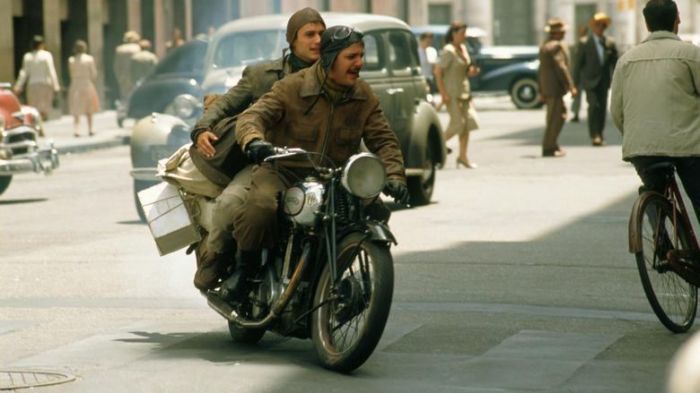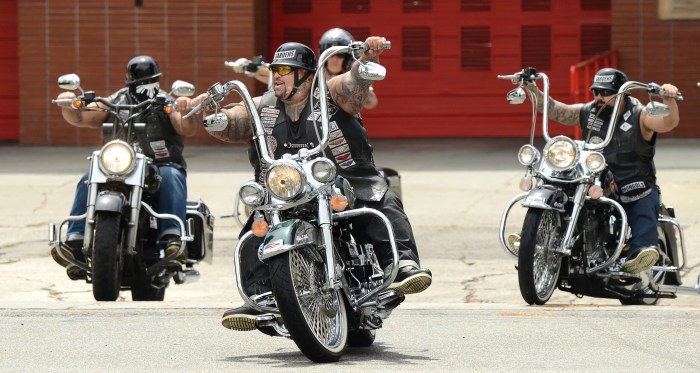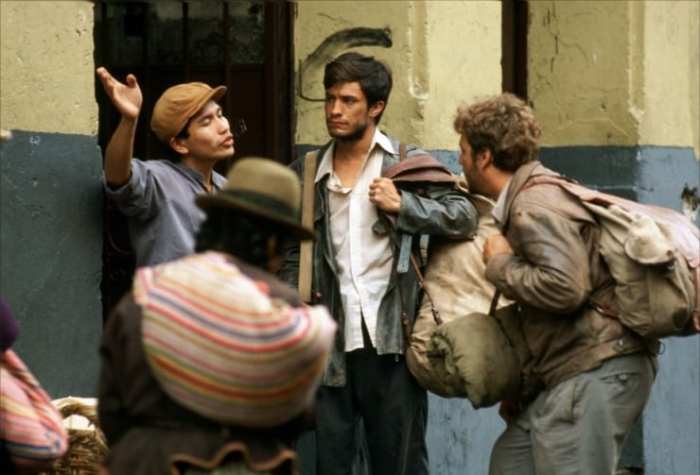Viste la película diarios de motocicleta – Diarios de Motocicleta, a cinematic masterpiece, embarks viewers on an extraordinary odyssey through the eyes of Che Guevara and Alberto Granado. As they traverse the rugged landscapes of Latin America, their transformative experiences ignite profound reflections on friendship, adventure, and the pursuit of social justice.
This film unveils the historical context of 1950s Latin America, shedding light on the social and political turmoil that shaped the characters’ perspectives. Through its evocative cinematography and captivating storytelling, Diarios de Motocicleta transcends mere entertainment, leaving an indelible mark on popular culture and inspiring generations.
Movie Overview

Diarios de Motocicletais a 2004 biographical road movie that follows the journey of two young men, Che Guevara and Alberto Granado, as they travel across South America on a motorcycle in 1952. The film provides insights into the early life and formative experiences of Guevara, who later became a revolutionary leader and icon of the Cuban Revolution.
Guevara, a medical student, and Granado, a biochemist, set out on their journey with the intention of exploring the continent and gaining a firsthand understanding of the social and economic conditions of its people. Their travels take them through a variety of landscapes and cultures, from the bustling cities of Buenos Aires and Lima to the remote villages of the Andes Mountains.
Characters, Viste la película diarios de motocicleta
Che Guevara: A young medical student with a strong sense of social justice and a desire to explore the world. His experiences during the journey shape his political views and lead him to become a revolutionary leader.
Alberto Granado: A biochemist and Guevara’s close friend. He is a more lighthearted and pragmatic character who provides a balance to Guevara’s idealism.
Themes and Symbolism
Themes
- Friendship: The film explores the close bond between Guevara and Granado, who overcome challenges and share life-changing experiences together.
- Adventure: The journey is a metaphor for the adventures of life, with its unexpected turns and transformative moments.
- Social Justice: The film highlights the social and economic inequalities that Guevara witnesses during his travels, which ignite his passion for social justice.
Symbolism
- The Motorcycle: The motorcycle represents freedom, adventure, and the open road, symbolizing the journey of self-discovery and exploration.
- The Road: The road is a metaphor for the path of life, with its obstacles, detours, and unforeseen destinations.
Historical Context

The film is set against the backdrop of Latin America in the 1950s, a period of political and social unrest. Guevara’s journey coincides with the rise of revolutionary movements in the region, influenced by the ideas of Marxism and socialism.
The film reflects the social and political issues of the time, such as poverty, inequality, and the struggle for social justice. Guevara’s experiences during his travels shape his political views and contribute to his later role as a revolutionary leader.
Character Development: Viste La Película Diarios De Motocicleta

Che Guevara
- Before the Journey: Guevara is a young medical student with a strong sense of idealism and a desire to help others.
- During the Journey: His experiences witnessing social injustice and poverty radicalize him, leading him to embrace revolutionary ideas.
- After the Journey: Guevara becomes a key figure in the Cuban Revolution and a symbol of social justice worldwide.
Alberto Granado
- Before the Journey: Granado is a pragmatic and lighthearted character who provides a balance to Guevara’s idealism.
- During the Journey: He witnesses the same social injustices as Guevara but remains more focused on the personal experiences and adventures of the journey.
- After the Journey: Granado continues to practice biochemistry and becomes a professor, but he also remains committed to social justice.
FAQ Resource
What is the central theme of Diarios de Motocicleta?
The film explores themes of friendship, adventure, and social justice, highlighting the transformative experiences of Che Guevara and Alberto Granado as they journey through Latin America.
How does the film reflect the historical context of Latin America?
Diarios de Motocicleta portrays the social and political conditions of Latin America in the 1950s, shedding light on the political turmoil and social inequality that influenced the characters’ perspectives.
What is the significance of the motorcycle in the film?
The motorcycle serves as a symbol of freedom, adventure, and the characters’ desire to break away from societal norms.